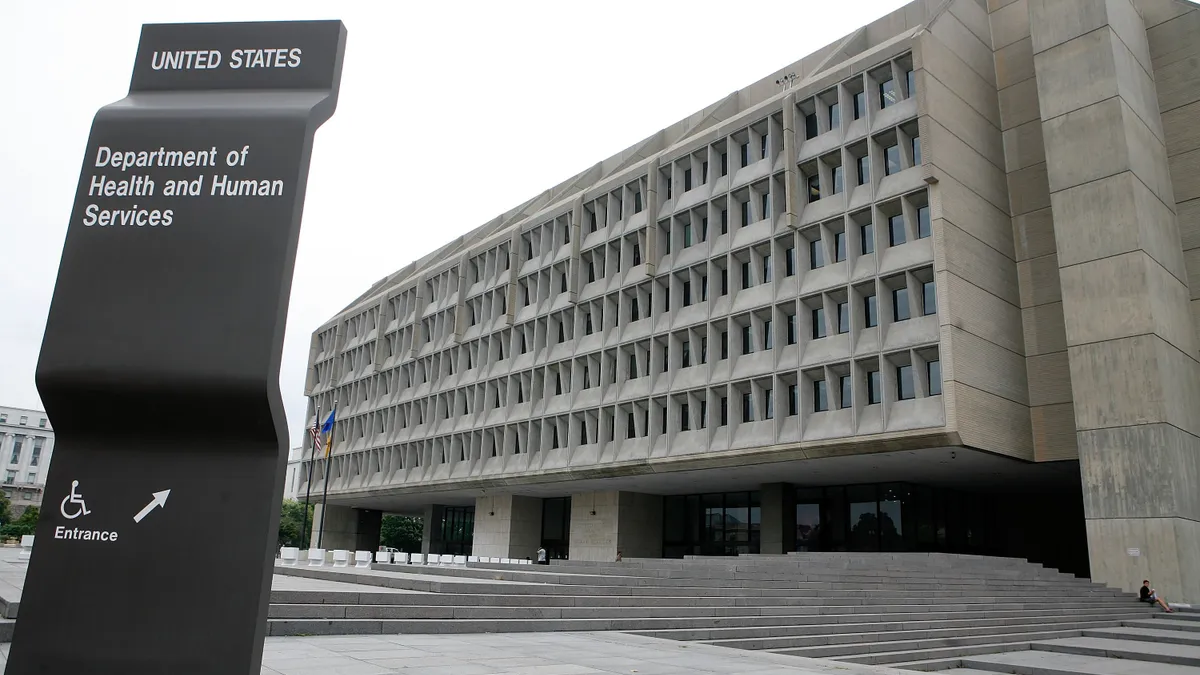Insurers offering Medicare Advantage and Medicare prescription drug plans were fined more money in the first four months of this year than in the past four years combined, according to a Healthcare Dive analysis of government data.
Civil monetary penalties against payers for improperly delaying or denying coverage, hitting members with higher cost sharing than allowed and other issues have already surpassed $3 million this year. That’s compared to less than $2 million in penalties in 2021 through 2024 combined, according to the data.
Fines against Medicare plans for bad behavior are on the rise
The CMS cautioned that the data shouldn’t be used to draw conclusions about larger issues in Medicare, after releasing a report this week summarizing enforcement action taken against plan sponsors in Medicare Part C, which is another name for privatized Medicare Advantage insurance, and Part D, Medicare’s prescription drug benefit.
“This report is not intended to reflect overall industry performance and should not be interpreted to mean that there are pervasive issues,” the CMS’ Medicare Parts C and D Oversight and Enforcement Group wrote.
The CMS did not respond to questions as to why financial penalties are increasing by time of publication.
However, the size of a fine mostly depends on how many enrollees were impacted by a violation, suggesting that more MA and Part D beneficiaries are in plans that fail to comply with CMS standards.
Yet steeper civil monetary penalties this year aren’t necessarily evidence of increasing problems now. Some of the recent fines stem from audits of past year’s behavior. For example, the lion’s share of the penalties this year stem from one $2 million fine against insurer Centene for charging enrollees above their annual maximum out-of-pocket limits four years prior.
Still, MA is under a microscope right now. Research shows that the program, which was created in the late 1990s as an alternative to traditional Medicare coverage, costs the government more than traditional Medicare, while restricting key services for enrollees.
CMS Administrator Dr. Mehmet Oz has said he’s interested in cracking down on practices like upcoding that drive inappropriate MA spending. In May, the agency significantly expanded its MA audit program to review all eligible contracts moving forward, instead of reviewing a discrete portion of plans, and fast-track audits from older payment years.
The CMS’ 2024 program audits covered almost 500 contracts that include almost 69% of the total Medicare Parts C and D population, according to the report.
The agency didn’t share a quantitative analysis of how frequently improper actions were happening. However, it found instances of plans inappropriately delaying or denying medication requests, limiting access to covered drugs, running substandard internal compliance programs and not tracking maximum out-of-pocket limits, resulting in beneficiaries paying more in cost-sharing than allowed.
Last year, the CMS also sanctioned two insurers — a UnitedHealthcare subsidiary that operates across a range of states and a Centene subsidiary in Missouri — for failing to spend at least 85% of premium dollars on their members’ medical care. The CMS suspended enrollment in their plans. Regulators also sanctioned five more insurers for not meeting the minimum criteria for benefits in dual Medicare-Medicaid plans.
Despite criticisms of MA, more seniors are enrolling in the privatized Medicare plans than ever.
MA enrollment surpassed that of traditional Medicare for the first time last year. Currently, more than half of all Medicare beneficiaries, or about 35 million people, are in Part C.














